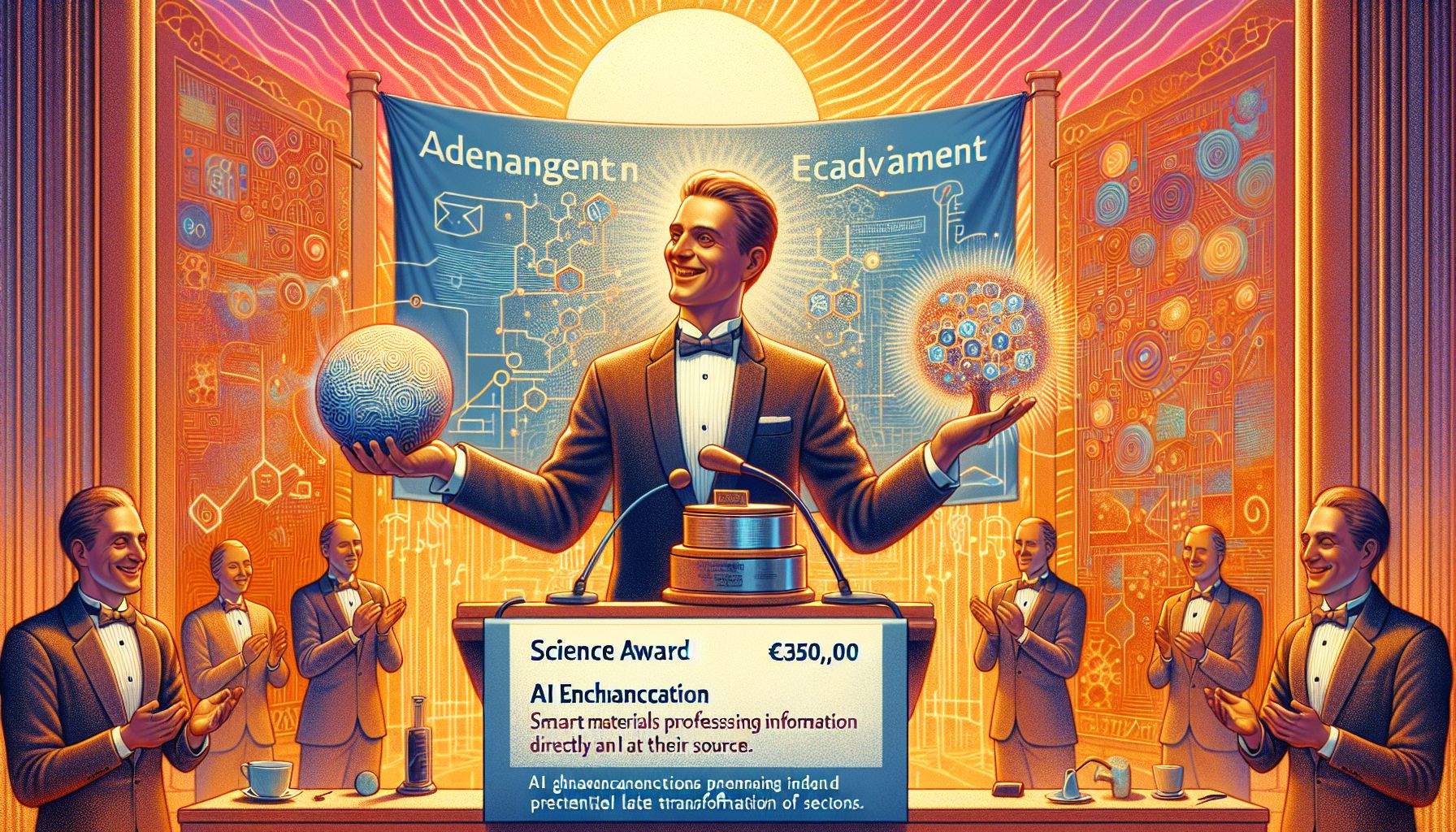Yoeri van de Burgt Wins €350,000 Ammodo Science Award for AI Advancement

Eindhoven, Wednesday, 30 April 2025.
Van de Burgt will explore using smart materials to enhance AI efficiency, potentially transforming sectors by processing information directly at its source.
Pioneering Neuromorphic Technology
Associate Professor Yoeri van de Burgt, based at TU Eindhoven’s Microsystems section, has established himself as a pioneer in neuromorphic technology [1]. His groundbreaking work focuses on developing hardware networks of artificial neurons and synapses that process electrical signals with unprecedented energy efficiency, marking a significant departure from conventional silicon-based computing systems [1]. A key innovation in his research portfolio is the electrochemical random-access memory (ECRAM) technology, which mimics brain cell connections and enables information processing directly at its source [1].
Global Recognition and Impact
The significance of van de Burgt’s ECRAM technology has garnered attention from prestigious institutions, with both MIT and IBM actively advancing the development of this innovative approach [1]. The technology’s applications extend beyond traditional computing, enabling robots to develop autonomous navigation capabilities and enhancing the accuracy of disease detection in biosensors, all while maintaining minimal energy consumption [1]. The award ceremony is scheduled for May 7, 2025, at the Stedelijk Museum in Amsterdam, where van de Burgt will be formally recognized for his contributions to the field [1].
Future Applications and Medical Integration
Van de Burgt’s vision extends into the medical field, where he aims to develop adaptable implants that bridge the gap between technology and biology [1]. This research direction represents a crucial step toward creating a new generation of computers that not only offer enhanced power and efficiency but also align seamlessly with human biological functions [1]. His work at TU Eindhoven’s AI Systems Institute, which houses 300 academic staff and 600 PhD candidates, contributes to a broader ecosystem focused on developing AI systems that harmonize with human needs [6].

